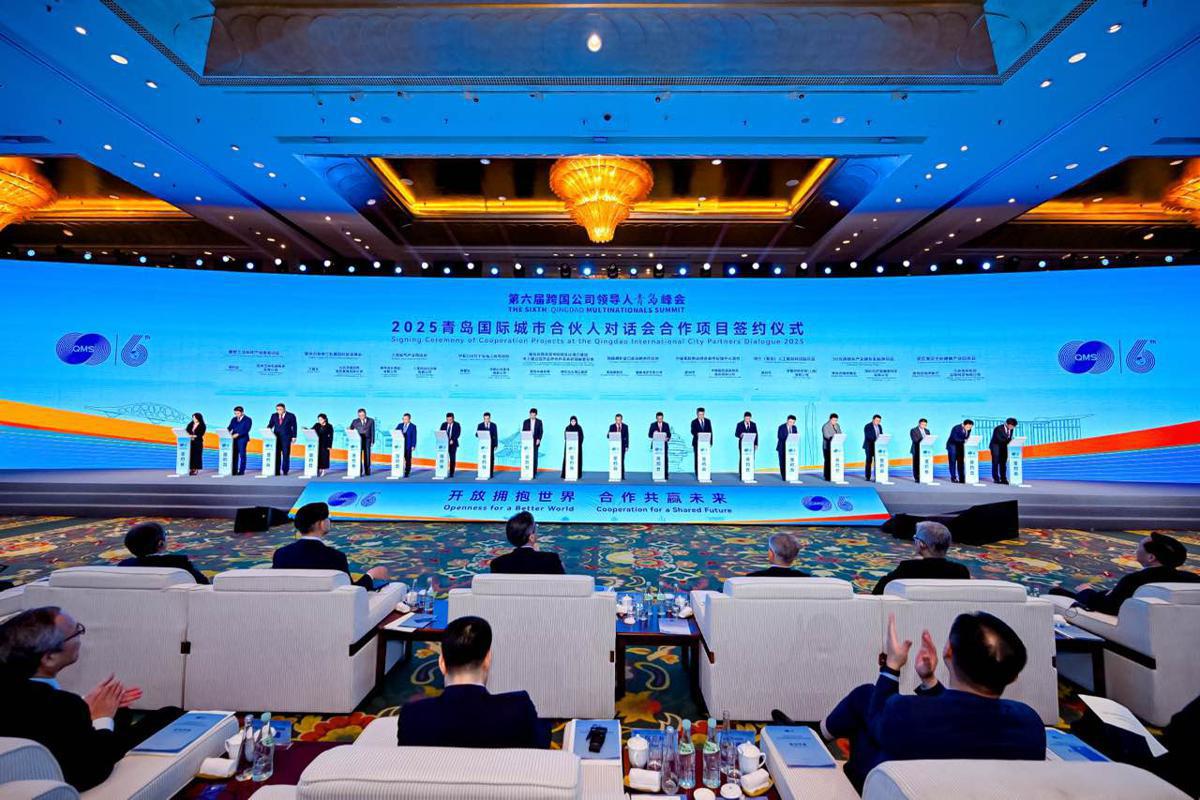In an era marked by rising protectionism and global economic uncertainty, multinational corporations are increasingly looking to China as a reliable partner and strategic gateway to international markets. That message resonated clearly at the Sixth Qingdao Multinationals Summit held in Shandong province from June 18 to 20, where more than 570 executives from 135 Fortune Global 500 firms and 330 industry leaders gathered to engage with one of the world’s most resilient economies.
Since its inception in 2019, the summit has evolved into a key platform for multinational companies to assess opportunities in the Chinese market and align with the country’s ongoing modernization and reform. This year’s record participation reflects growing confidence among global businesses in China’s long-term economic potential.
Amid global economic headwinds, China is positioning itself as a rare constant—a nation pushing forward with high-quality growth and pro-business reforms. According to the summit’s “Multinationals in China” report, foreign-invested industrial firms have seen their profits rise from 1.6 trillion yuan in 2019 to 1.8 trillion yuan in 2024, consistently outperforming the national industrial average.
Unlike many economies that are turning inward, China continues to adopt an outward-facing approach. In 2025 alone, it launched the Action Plan for Stabilizing Foreign Investment, introduced 20 new policy measures, and rolled out 155 pilot reforms across various sectors—all aimed at creating a more attractive investment environment. Economic and technological development zones, along with pilot free trade zones, remain at the forefront of this effort, offering targeted incentives and policy support for foreign firms.
This commitment to openness is prompting a strategic shift among multinational companies. Where firms once entered China for its vast consumer base or manufacturing strengths, many are now embedding China into their global strategies as a critical hub for innovation, production, and international market connectivity. As Jens Eskelund, president of the European Union Chamber of Commerce in China, noted, “European companies must have a foothold in the Chinese market if they want to maintain their global competitiveness.”
The summit’s theme, “Multinationals and China: Connecting the World for Win-Win Cooperation,” captured this changing perspective. China is no longer just a destination; it’s a launchpad. With unmatched policy stability, an integrated supply chain ecosystem, and a super-sized domestic market, China is uniquely positioned to help global businesses scale, compete, and thrive on the world stage.
As the global landscape continues to shift, China’s consistent message is clear: its door will remain open, and its business climate will only improve. For multinationals seeking to strengthen their competitiveness and secure future growth, China is not merely an option—it is becoming an essential part of the global equation.

